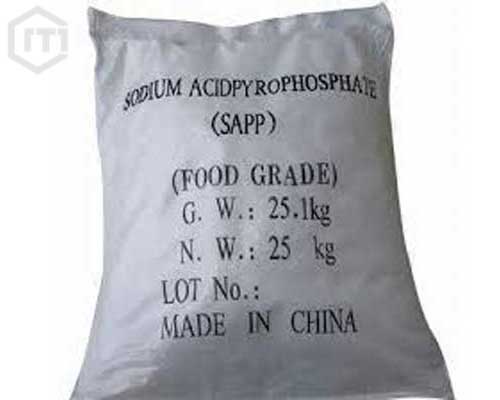Sodium pyrophosphate or sodium acid pyrophosphate are edible phosphates, which are helpful for baking and fermentation, such as baking powder. It can help prevent food from discoloration, such as, used for peeled potatoes.
Sodium pyrophosphate is a component of baking powder, naturally fermented flour and corn flour. Commercially, it is used as an ingredient for pre-made cakes, puddings, waffles, pancakes and muffins. SAPP can also be added to frozen dough products, flavored milk, bacon, potato products and canned fish.
Is Sodium Acid Pyrophosphate Safe in Food
Studies have shown that people over the age of 18 are recommended to consume 700mg of phosphorus per day. This intake can supply enough phosphorus for the formation of healthy bones and the processing of cellular energy. Excessive amounts may lead to loss of bone mineral density and the ability to fully absorb dietary calcium. Excessive phosphate intake may cause hyperphosphatemia, leading to hypocalcemia or other serious electrolyte imbalances. Therefore, pyrophosphoric acid can’t be used in excess in food processing. Since sodium acid pyrophosphate or other phosphate food additives are dispersed in the prepared food in a standard amount, the intake of phosphorus is difficult to exceed the standard dose required by the human body.


